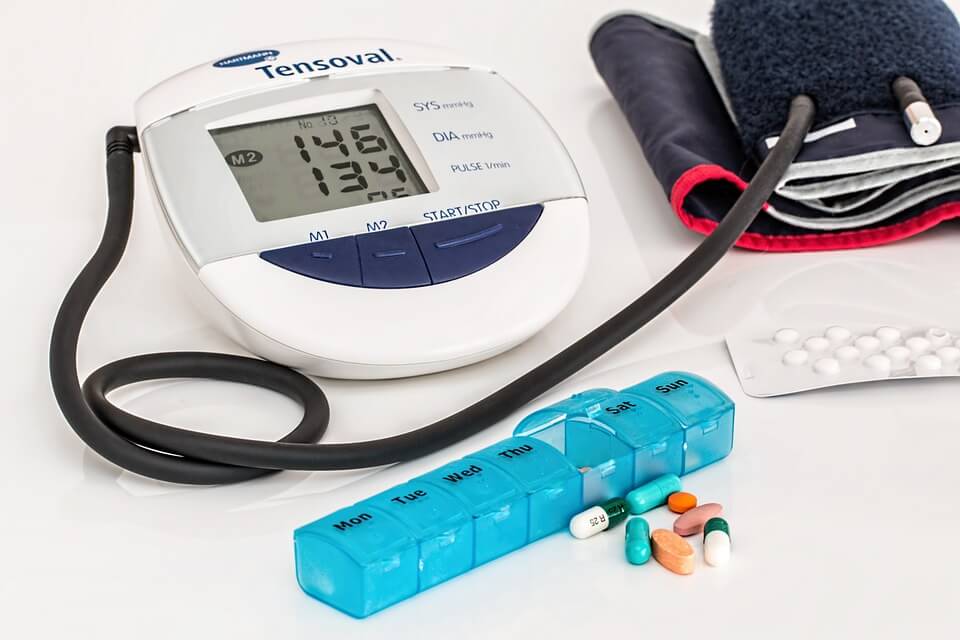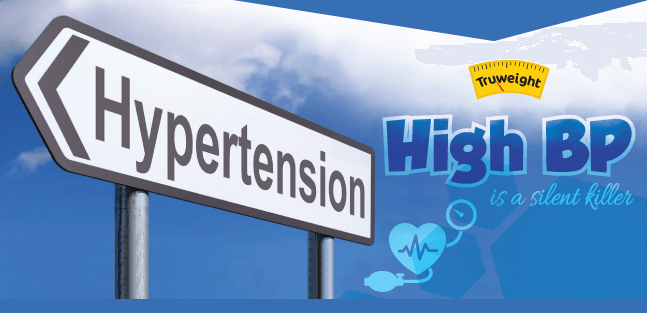One hard fact about hypertension or high blood pressure is that it is a silent killer. In 90% of patients, there is no known cause for hypertension and this makes it even more important to be alert.
It is often considered as a lifestyle disease with every third person we meet suffering from it. Hypertension or high blood pressure causes life-threatening complications like a heart attack or stroke.
Table of Content
- Key points about High Blood Pressure
- The main cause of Hypertension
- Stress for Hypertension
- Lifestyle Modification
Hypertension, if left untreated can damage vital organs of our body like the brain, kidneys, and blood vessels of lower limbs and retina of eyes.
4 Key points about high blood pressure
- Normal blood pressure is 120 over 80 mm of mercury (mmHg), but hypertension is higher than 130 over 80 mmHg.
- Acute causes of high blood pressure include stress, but it can happen on its own, or it can result from an underlying condition, such as kidney disease.
- Unmanaged hypertension can lead to a heart attack, stroke, and other problems.
- Lifestyle factors are the best way to address high blood pressure.

Main causes hypertension
Though the cause of hypertension is often not known yet there are many factors that contribute towards it.
1] Age
Hypertension is more common in people aged over 40 years. With age, blood pressure can increase steadily as the arteries become stiffer and narrower due to plaque build-up.
2] Size and weight
Excess fat accumulation in the blood vessels causes restriction to the blood flow. This, in turn, results in increased pressure. Thus, being overweight or obese is a key risk factor.
3] Alcohol and tobacco use
Consuming large amounts of alcohol regularly can increase a person’s blood pressure, as can smoking tobacco.
4] Gender
The lifetime risk is the same for males and females, but men are more prone to hypertension at a younger age. The prevalence tends to be higher in older women.
5] Existing health conditions
Cardiovascular disease, diabetes, chronic kidney disease, and high cholesterol levels can lead to hypertension, especially as people get older.
6] Physical inactivity
Leading a sedentary life also is a major cause of hypertension.
7] Salt-rich diet
Diet rich in sodium associated with processed and fatty foods can lead to hypertension.
8] Genes
A family history of high blood pressure and poorly managed stress can also contribute.
Stress leads to high blood pressure

We all know that our body produces a lot of hormones when we are in a stressful situation. These hormones temporarily increase our blood pressure by causing our heart to beat faster, this also makes our blood vessels narrow. There is no significant proof but it may be those other behaviours linked to stress such as overeating, drinking alcohol and poor sleeping habits cause high blood pressure.
Studies suggest that it is possible that health conditions related to stress such as anxiety, depression, and isolation from friends and family may be linked to heart disease, but there is no evidence they’re linked to high blood pressure.
It is also known that the hormones produced when we are emotionally stressed or low may damage your arteries, leading to heart disease. Thus it is important that we reduce stress in our life for better health and life. Mastering stress management techniques can lead to other behaviour changes including reducing blood pressure.
What is secondary hypertension?
In Secondary Hypertension, an identifiable cause of hypertension is present. The most common cause of secondary hypertension is kidney disease.
The other causes of secondary hypertension include hormonal abnormalities, primarily those of thyroid gland and adrenal gland. Other conditions such as obstructive sleep apnea and drugs causing hypertension may also lead to Secondary Hypertension.
Lifestyle modifications to deal with hypertension
- Simplify your schedule
- Breathe to relax
- Exercise
- Try yoga and meditation
- Get plenty of sleep
- Eat right and healthy
- Detox your body
When do you need to consult a doctor?
Hypertension is considered a ‘silent disease’ owing to the symptoms, that most of the times, go unnoticed. Though, if remain unchecked for long, can lead to serious consequences like heart disease, stroke and even, kidney diseases.
Therefore, it is important to have a regular checkup with your physician to make sure that your blood pressure lies within the normal range.
While it is important to keep a track of your blood pressure regularly, it becomes very important to consult a doctor when the following symptoms persist:
- Persistent elevation in blood pressure or condition of hypertension, even after the administration of the prescribed medicines.
- Symptoms like headache, lightheadedness, blurred vision, fatigue, nausea, shortness of breath should not be taken lightly and the concerned individual should seek immediate medical care.
- Also, urgent medical attention should be assured if witnessing symptoms like stroke (numbness, trembling in speech) or chest pain.
In fact, if you have any concerns about your health, you should consult your doctor and clear all doubts.
Remember that the goal is to reduce stress, so discover what works for you. Choose your strategies, take action and start enjoying the benefits.
As part of the process, meet our Possible Nutritionist today and gain valuable insights on how to stay away from hypertension and lead a healthy happy life. The first consultation is on us. Click here to avail!

Therefore, drink at least 2-4 liters of water.
Hi Clyde! We agree with you drinking lots of water will helps to control the blood pressure. However this article explains the key things to know about blood pressure and lifestyle modifications to deal with hypertension. Keep following our blog to know more health information.